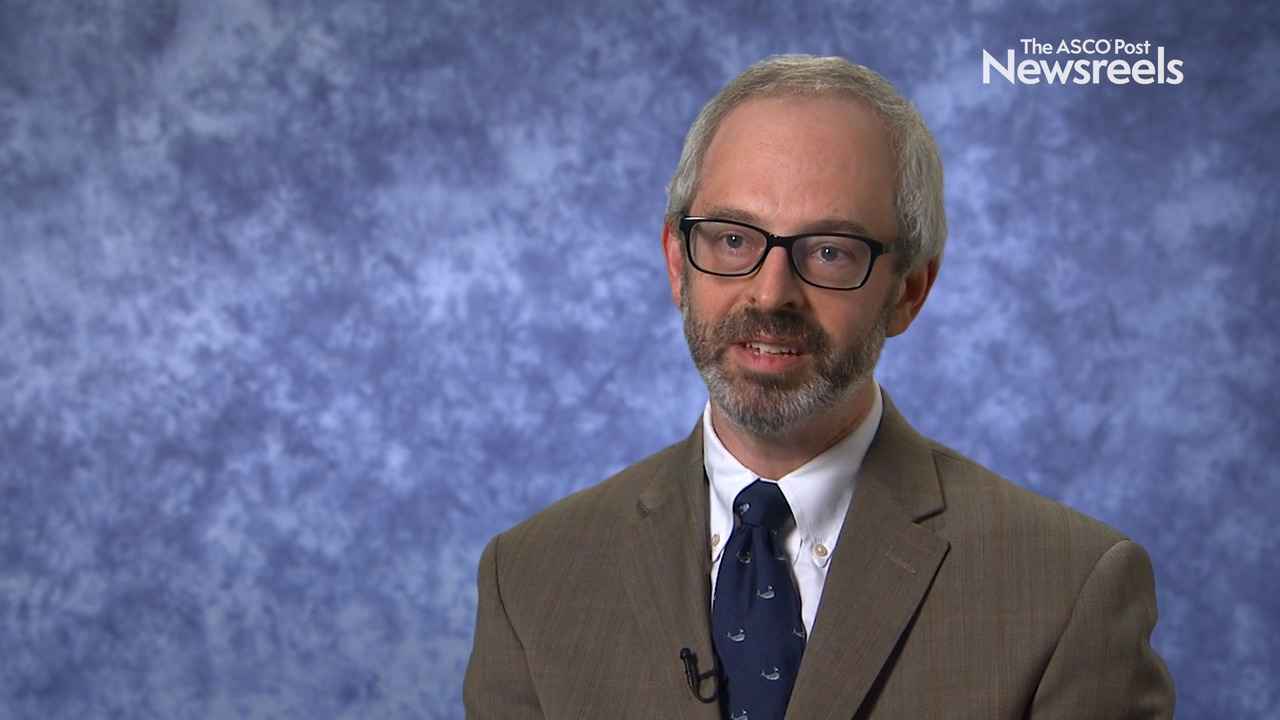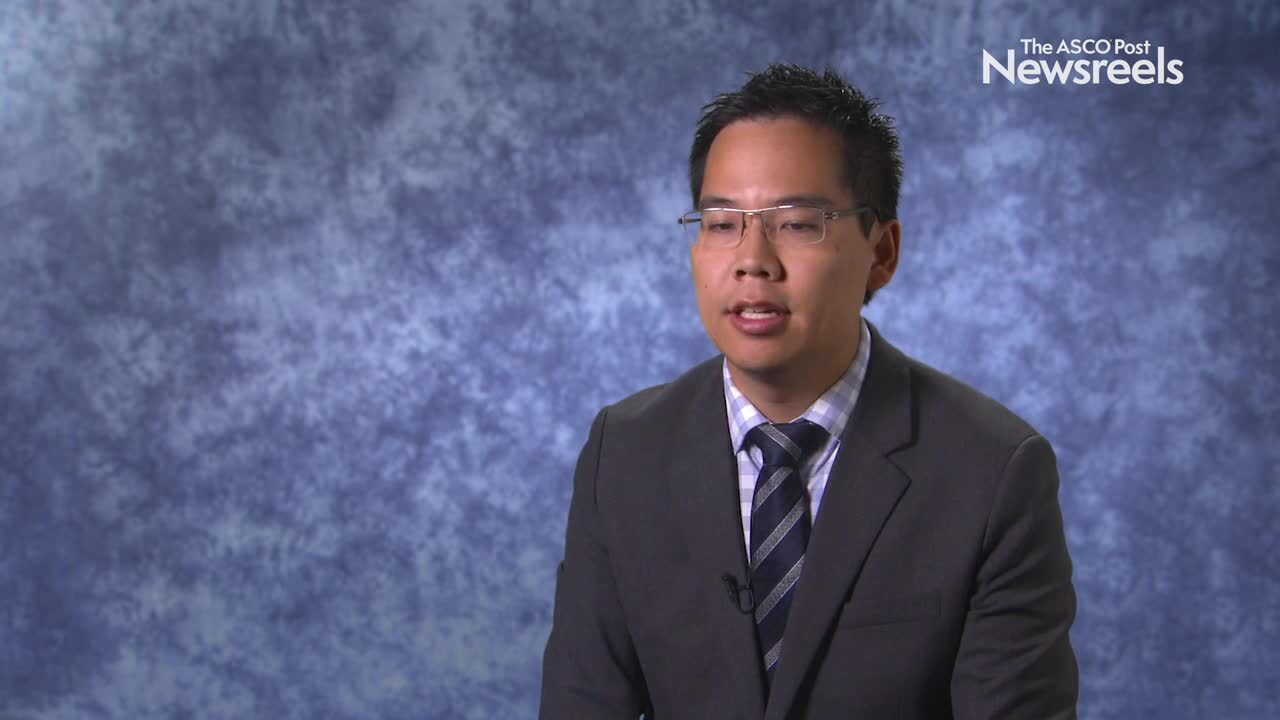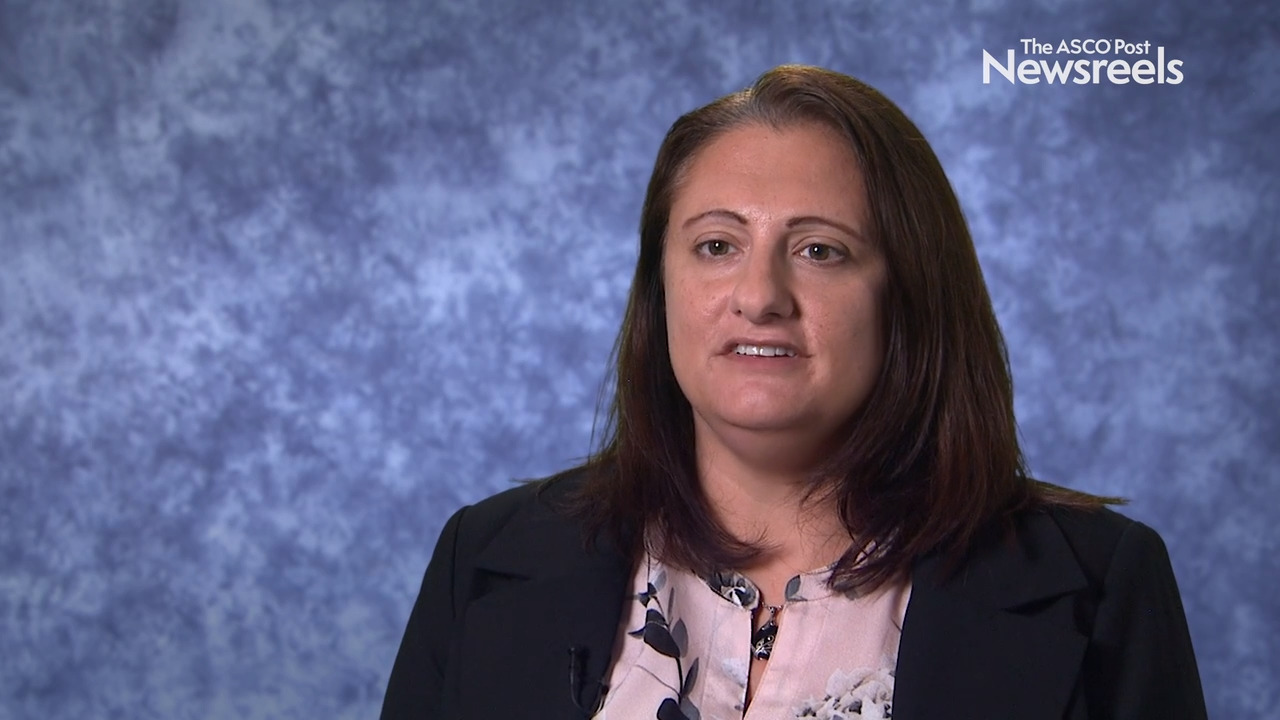Bernardo H.L. Goulart, MD, on Stage IV NSCLC: High Drug Costs May Affect Survival
2019 Quality Care Symposium
Bernardo H. L. Goulart, MD, of Seattle Cancer Care Alliance, discusses his findings that high out-of-pocket costs for oral tyrosine kinase inhibitors may lower survival rates, shorten the duration of therapy, and reduce the number of prescriptions for patients with metastatic EGFR- or ALK-positive non–small cell lung cancer (Abstract 3).
Cary P. Gross, MD, of Yale School of Medicine, discusses the challenges of implementing pathways and guiding patient decision-making on treatment.
Mallika Sharma, MPH, of Seattle Cancer Care Alliance, discusses her findings that, by doing away with the many prior authorization denials based on administrative errors, providers may offer higher-value care by eliminating unnecessary anxiety among patients, administrative burdens, and increased costs (Abstract 9).
Michael Kenneth Keng, MD, of the University of Virginia, gives a status update on this international program, and discusses future initiatives which include coaching mentorship and publishing articles on quality care (Abstract 7).
Angela M. Stover, PhD, of the University of North Carolina at Chapel Hill, discusses ASCO’s initiative to develop patient-based performance measures for assessing and managing symptoms. The measures have made substantial differences in reducing nausea, constipation, and insomnia (Abstract 173).
Manali I. Patel, MD, of Stanford Cancer Center, discusses enhancing value for patients with cancer treated by community practitioners at the end of life by also utilizing trained lay health workers in a novel intervention that reduced the use of acute care and emergency department visits while improving quality of life.





